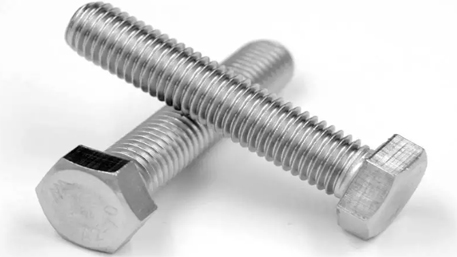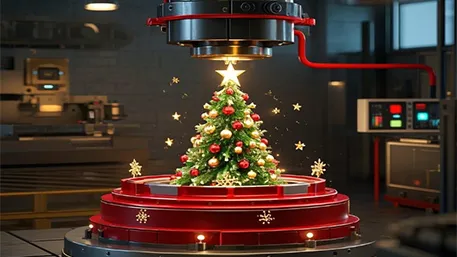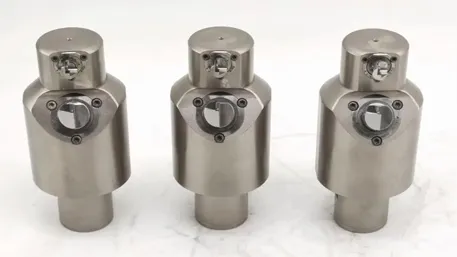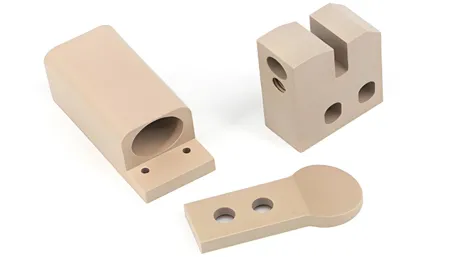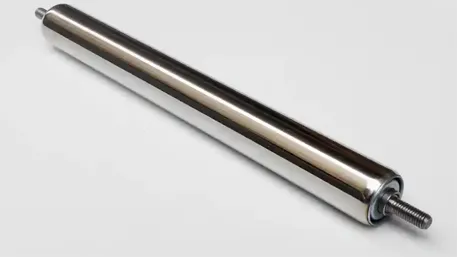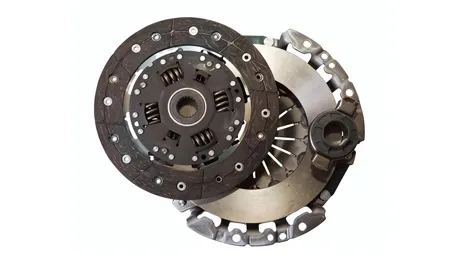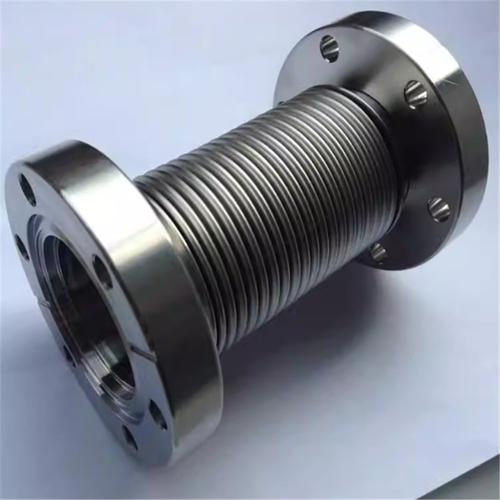In the vast realm of mechanical engineering and assembly, screws serve as the unsung heroes that hold components together, ensuring the integrity and functionality of countless products. Among the diverse array of screw types, custom CNC (Computer Numerical Control) hexagon head screws have emerged as a preferred choice for industries demanding the highest levels of precision, strength, and reliability. Leveraging advanced CNC technology, these custom screws are manufactured to exacting standards, meeting the unique requirements of various applications. This article explores the technical capabilities, customization process, material selection, quality control, and industry applications of custom CNC hexagon head screws, highlighting their crucial role in modern manufacturing.
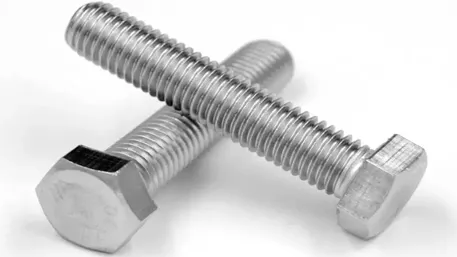
I. Technical Excellence: Redefining Screw Precision
(A) Unrivaled Dimensional Accuracy
CNC machining systems are meticulously calibrated to achieve extraordinary dimensional accuracy in the production of hexagon head screws. With positioning accuracy reaching ±0.002mm and repeat positioning accuracy of ±0.003mm, we can fabricate screws with extremely tight tolerances. For instance, when manufacturing high – precision hexagon head screws for aerospace applications, the diameter of the screw shank and the pitch of the threads can be maintained within ±0.002mm. This level of precision ensures a perfect fit with mating components, minimizing the risk of loosening and enhancing the overall structural integrity of assembled products.
(B) Complex Geometry Machining
Five – axis CNC machining technology enables the creation of hexagon head screws with complex geometries. Whether it’s screws with specialized thread profiles (such as buttress threads for high – load applications), unique head shapes with additional features (like countersunk hexagon heads), or screws with integrated locking mechanisms, the five – axis system can execute these designs with ease. Compared to traditional machining methods, which often struggle to produce intricate details, five – axis CNC machining reduces errors from ±0.01mm to within ±0.003mm. Moreover, it significantly boosts production efficiency, allowing for the rapid manufacturing of custom screws in both small and large batches.
(C) Advanced Threading and Surface Finishing
The production of custom CNC hexagon head screws involves advanced threading and surface finishing processes optimized through CNC control. For threading, high – precision CNC threading machines use single – point or multi – point cutting tools to create threads with precise profiles and pitches. The use of advanced software algorithms ensures that the threads are uniformly cut, providing consistent engagement and torque values. In terms of surface finishing, techniques such as CNC – controlled polishing, plating, and coating can be applied. For example, screws used in corrosive environments can be coated with a layer of zinc or nickel – based plating through CNC – monitored electroplating processes, enhancing their corrosion resistance and extending their service life.
II. End – to – End Customization: Tailoring Screws to Your Specific Needs
(A) In – Depth Requirement Analysis and Design Conceptualization
When you approach us with your screw requirements, our experienced engineering team engages in detailed discussions to understand your application, performance expectations, and design preferences. We consider factors such as the material to be fastened, the expected load and stress conditions, the environmental factors (temperature, humidity, corrosion), and the aesthetic requirements. Using state – of – the – art CAD/CAM software, we generate multiple design concepts. We then collaborate closely with you, refining the designs until they perfectly align with your vision. Whether you need a standard hexagon head screw with a unique modification or a completely new design for a specialized project, we have the expertise to bring your ideas to life.
(B) Strategic Material Selection and Cost Analysis
Based on the finalized design, we recommend the most suitable materials for your custom hexagon head screws. A wide range of materials is available, each offering different properties. For general – purpose applications, carbon steels like 1018 and 1045 are commonly used due to their good balance of strength and cost – effectiveness. Alloy steels, such as 4140 and 4340, are ideal for high – strength applications where increased durability and resistance to fatigue are required. In corrosive environments, stainless steels like 304 and 316L are the go – to choice. Simultaneously, we conduct a detailed cost analysis, factoring in material costs, machining complexity, and production volume, to provide you with a transparent and competitive quote.
(C) Precision Manufacturing and Order Tracking
Once you approve the design and quote, production commences. You can monitor the progress of your order in real – time through our dedicated online tracking platform. Our skilled technicians follow strict manufacturing standards, using advanced CNC turning, milling, and threading machines to produce screws that meet the highest quality benchmarks. We keep you informed at every stage of the production process, from raw material procurement to the final inspection.
(D) Rigorous Quality Assurance and Timely Delivery
After production, each custom hexagon head screw undergoes a rigorous quality inspection. Only screws that meet our exacting standards are shipped to you. We perform dimensional inspections using coordinate measuring machines (CMMs) to ensure that all critical dimensions, including the diameter, length, head size, and thread pitch, are within ±0.002mm. Thread quality is also carefully examined using thread gauges and optical inspection systems to ensure proper engagement and strength. In addition, we conduct mechanical tests, such as tensile strength testing, torque testing, and fatigue testing, to validate the performance of the screws. We also offer comprehensive after – sales support, addressing any concerns you may have during the product’s lifecycle.
III. Strategic Material Selection: Choosing the Right Material for Optimal Performance
(A) Carbon Steels
- 1018 Carbon Steel: This low – carbon steel is known for its excellent formability and machinability. With a tensile strength of around 440 MPa, it offers a good balance of strength and ductility, making it suitable for a wide range of general – purpose applications, such as furniture assembly, light – duty machinery, and consumer products. Its relatively low cost also makes it an attractive option for projects with budget constraints.
- 1045 Carbon Steel: A medium – carbon steel, 1045 offers higher strength compared to 1018. After heat treatment, it can achieve a tensile strength of up to 600 MPa. It is commonly used in applications where moderate strength and wear resistance are required, such as automotive components, construction equipment, and industrial machinery.
(B) Alloy Steels
- 4140 Alloy Steel: Containing alloying elements like chromium, molybdenum, and manganese, 4140 alloy steel has high strength, hardness, and excellent fatigue resistance. It can be heat – treated to achieve a tensile strength of up to 1030 MPa, making it ideal for high – stress applications, such as aerospace fasteners, heavy – duty automotive components, and high – performance machinery.
- 4340 Alloy Steel: This high – strength alloy steel offers superior toughness and strength, with a tensile strength of up to 1175 MPa when properly heat – treated. It is often used in critical applications where reliability and performance are paramount, such as military equipment, aircraft landing gear, and high – precision industrial machinery.
(C) Stainless Steels
- 304 Stainless Steel: One of the most commonly used stainless steels, 304 offers good corrosion resistance in a variety of environments, including mild chemical exposure and normal atmospheric conditions. It has a tensile strength of ≥515 MPa and is suitable for applications where corrosion resistance and a clean, aesthetic appearance are important, such as in food processing equipment, medical devices, and architectural applications.
- 316 Stainless Steel: Also known as marine – grade stainless steel, 316 contains molybdenum, which provides enhanced resistance to chloride – induced corrosion. It has a tensile strength of ≥485 MPa and is widely used in applications exposed to harsh environments, such as marine equipment, chemical processing plants, and offshore structures.
IV. Stringent Quality Control: Ensuring Top – Tier Screw Quality
(A) Raw Material Inspection
All incoming raw materials for custom hexagon head screws are subject to strict quality checks. We use spectroscopic analysis to verify the chemical composition of the metals, ensuring that they meet the required standards. For example, when using 4140 alloy steel, we confirm that the chromium, molybdenum, and manganese contents are within the specified ranges. Additionally, hardness testing, tensile testing, and microstructure analysis are performed to ensure the material’s integrity and suitability for the intended application.
(B) In – Process Monitoring
Throughout the manufacturing process, we employ statistical process control (SPC) techniques to monitor key manufacturing parameters. Regular sampling and data collection help us identify and correct any potential issues promptly. We monitor parameters such as cutting speeds, feed rates, tool wear, and thread – forming forces during machining. If any parameter deviates from the set values, we can adjust the process in real – time to ensure consistent product quality.
(C) Final Product Validation
Before shipping, each screw undergoes a comprehensive inspection. We use CMMs to verify dimensional accuracy, ensuring that all critical dimensions are within ±0.002mm. Thread quality is carefully inspected using thread gauges and optical inspection systems to ensure proper thread form, pitch, and engagement. In addition, we conduct mechanical tests, such as tensile strength tests to ensure the screw can withstand the expected loads, torque tests to verify proper tightening and loosening characteristics, and fatigue tests to assess the screw’s durability under repeated stress. Only screws that pass all these tests are considered ready for delivery.
V. Diverse Industry Applications: Powering Multiple Sectors
(A) Aerospace Industry
In the aerospace industry, where safety and reliability are of utmost importance, custom CNC hexagon head screws are used in a wide range of applications. From securing aircraft structural components to attaching engine parts, these screws must meet strict quality and performance standards. The high precision and strength of custom – made hexagon head screws, often manufactured from alloy steels or titanium alloys, ensure that they can withstand the extreme conditions encountered during flight, such as high speeds, intense vibrations, and rapid temperature changes.
(B) Automotive Industry
The automotive industry relies on custom hexagon head screws for various assembly tasks. These screws are used to fasten engine components, suspension systems, body panels, and interior parts. Different materials and designs are chosen based on the specific application requirements. For example, high – strength alloy steel screws are used in critical engine and chassis components to withstand high loads and vibrations, while corrosion – resistant stainless steel screws are used in exterior and underbody parts to resist rust and environmental damage.
(C) Electronics Industry
In the electronics industry, where precision and miniaturization are key, custom hexagon head screws are used to assemble delicate electronic devices, such as smartphones, laptops, and tablets. These screws need to be small, lightweight, and highly precise to ensure proper alignment and secure fastening of components without causing damage. Stainless steel or aluminum screws are commonly used due to their corrosion resistance and low magnetic properties, which are important in electronic applications.
(D) Construction Industry
In construction, custom hexagon head screws are used for a variety of purposes, including fastening wooden structures, metal framing, and roofing materials. Carbon steel screws with appropriate surface treatments, such as zinc plating, are commonly used to provide corrosion resistance in outdoor environments. The high – strength and durability of these screws ensure the stability and longevity of construction projects.
VI. Frequently Asked Questions (FAQ)
(A) What is the typical precision of custom CNC hexagon head screws?
Our CNC machining can achieve a dimensional tolerance of ±0.002mm, ensuring a precise fit and reliable performance in your applications.
(B) How do I choose the right material for my custom screws?
The choice depends on your application’s requirements, such as the expected load, environmental conditions, and cost. Our experts can assess your needs and recommend the most suitable material to meet your performance and budget expectations.
(C) What is the lead time for custom screws?
Lead times vary depending on the complexity of the design and order quantity. Simple designs can be completed in 3 – 5 days, while more complex ones may take 7 – 10 days. Rush orders are available upon request.
(D) Can CNC machining handle custom screw designs with unique thread profiles?
Yes, our advanced CNC machines are capable of fabricating screws with a wide variety of thread profiles, including metric, imperial, and specialized threads, to meet even the most demanding design requirements.
(E) How much does it cost to customize hexagon head screws?
Costs are determined by factors such as material, design complexity, precision requirements, and production volume. While small – batch customization may be relatively costly, economies of scale can significantly reduce per – unit costs for larger orders.
VII. Customer Testimonials
An aerospace company approached us to develop custom hexagon head screws for their new aircraft model. Our team used advanced CNC machining and high – strength alloy steel materials to create screws that met the stringent aerospace standards. The new screws not only provided a secure and reliable fastening solution but also reduced the overall weight of the aircraft assembly by 15%, contributing to improved fuel efficiency. The company was highly satisfied with the performance and quality of the custom screws.
An electronics manufacturer needed custom – sized hexagon head screws for their latest smartphone design. We designed and manufactured screws with a unique head shape and precise thread pitch to fit the compact and delicate structure of the device. The screws’ corrosion – resistant stainless steel material and high – precision machining ensured a secure assembly and enhanced the product’s durability. The customer reported a significant reduction in assembly errors and an increase in product quality, leading to higher customer satisfaction.
Reach Out Now for Your Custom CNC Hexagon Head Screws!
Regardless of your industry or application, our team of experts is ready to collaborate with you. We offer a seamless end – to – end service, from design to delivery. Contact us today to discuss your project requirements and take the first step towards getting top – quality custom CNC hexagon head screws that will ensure the reliability and success of your products.
